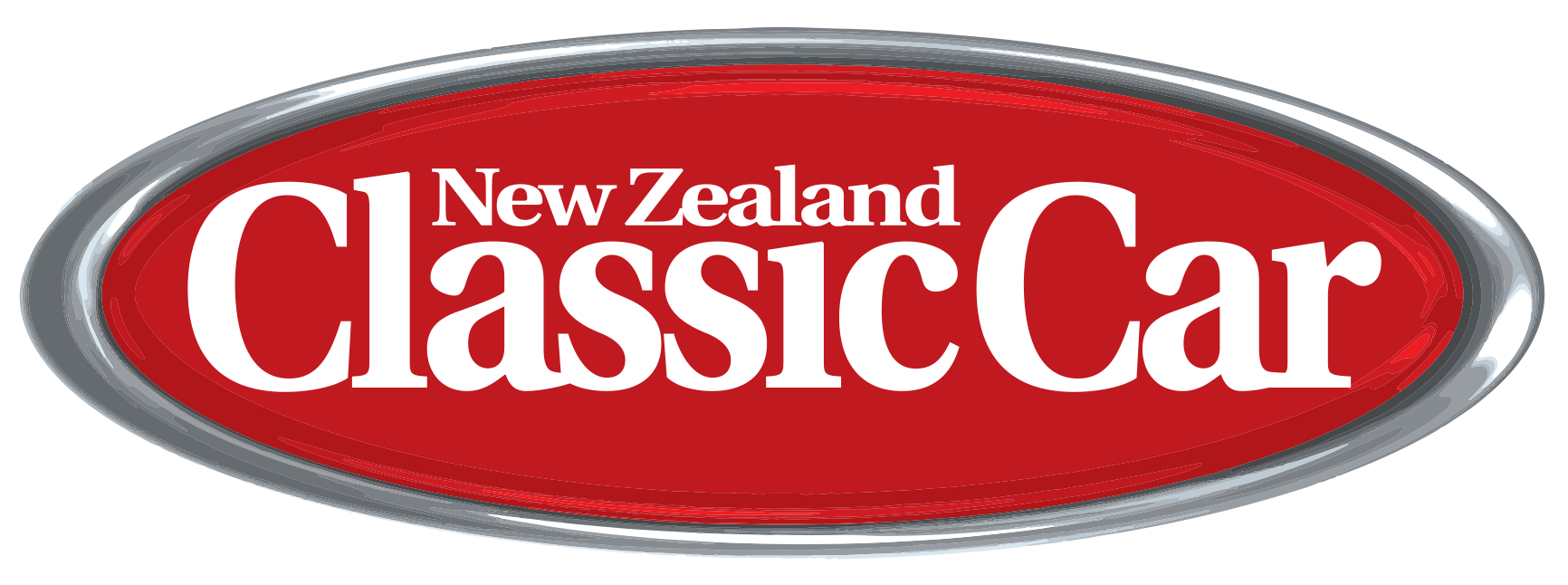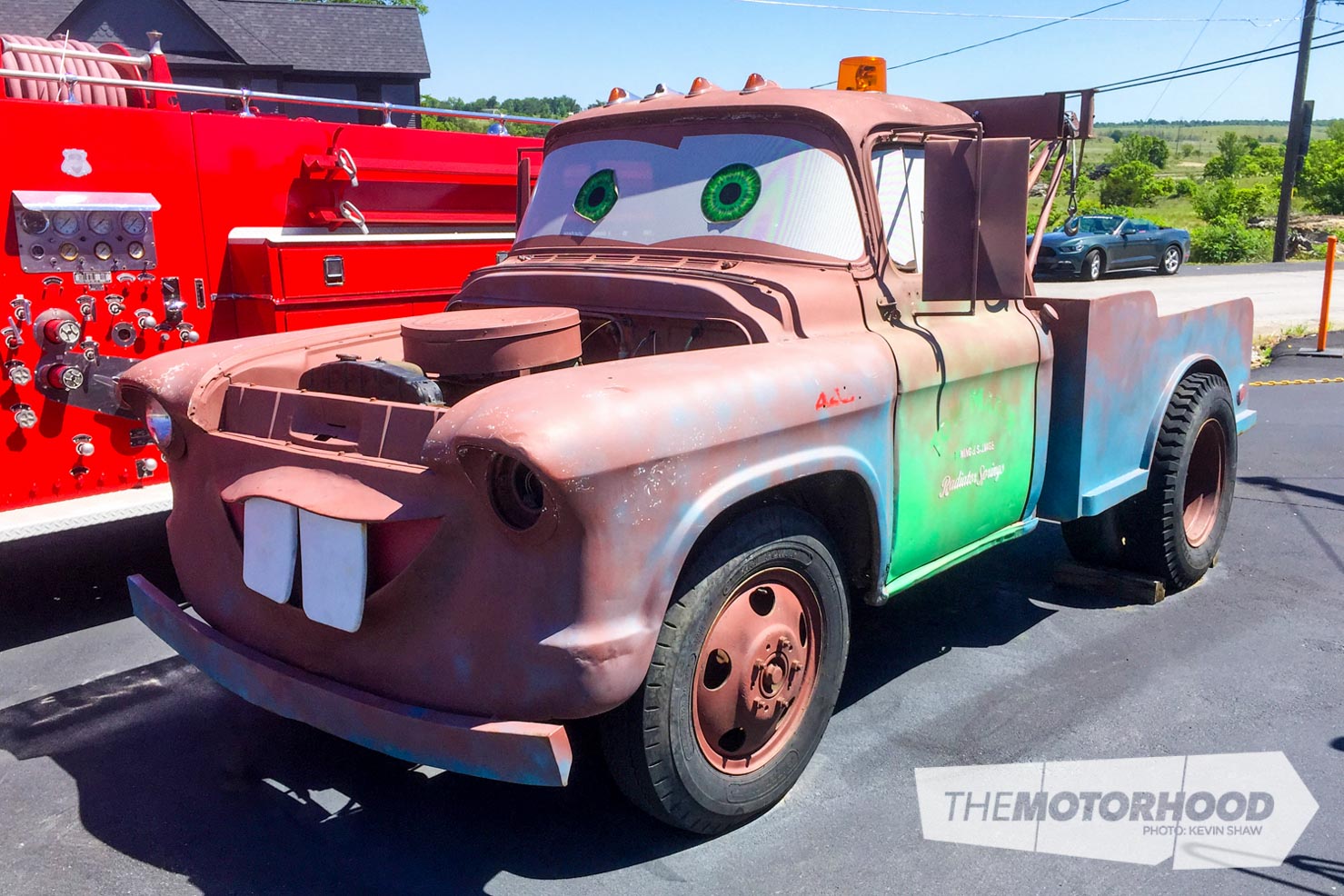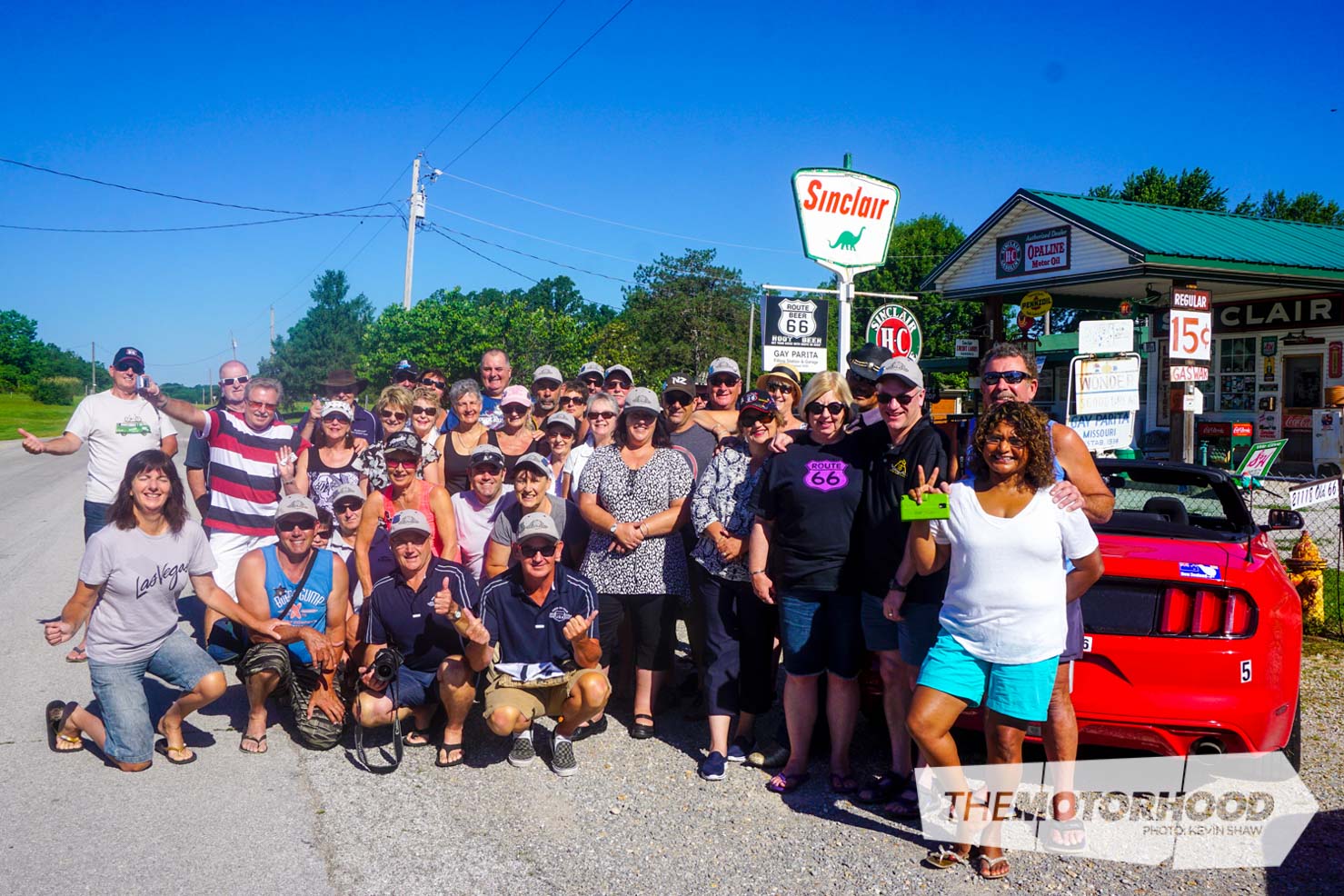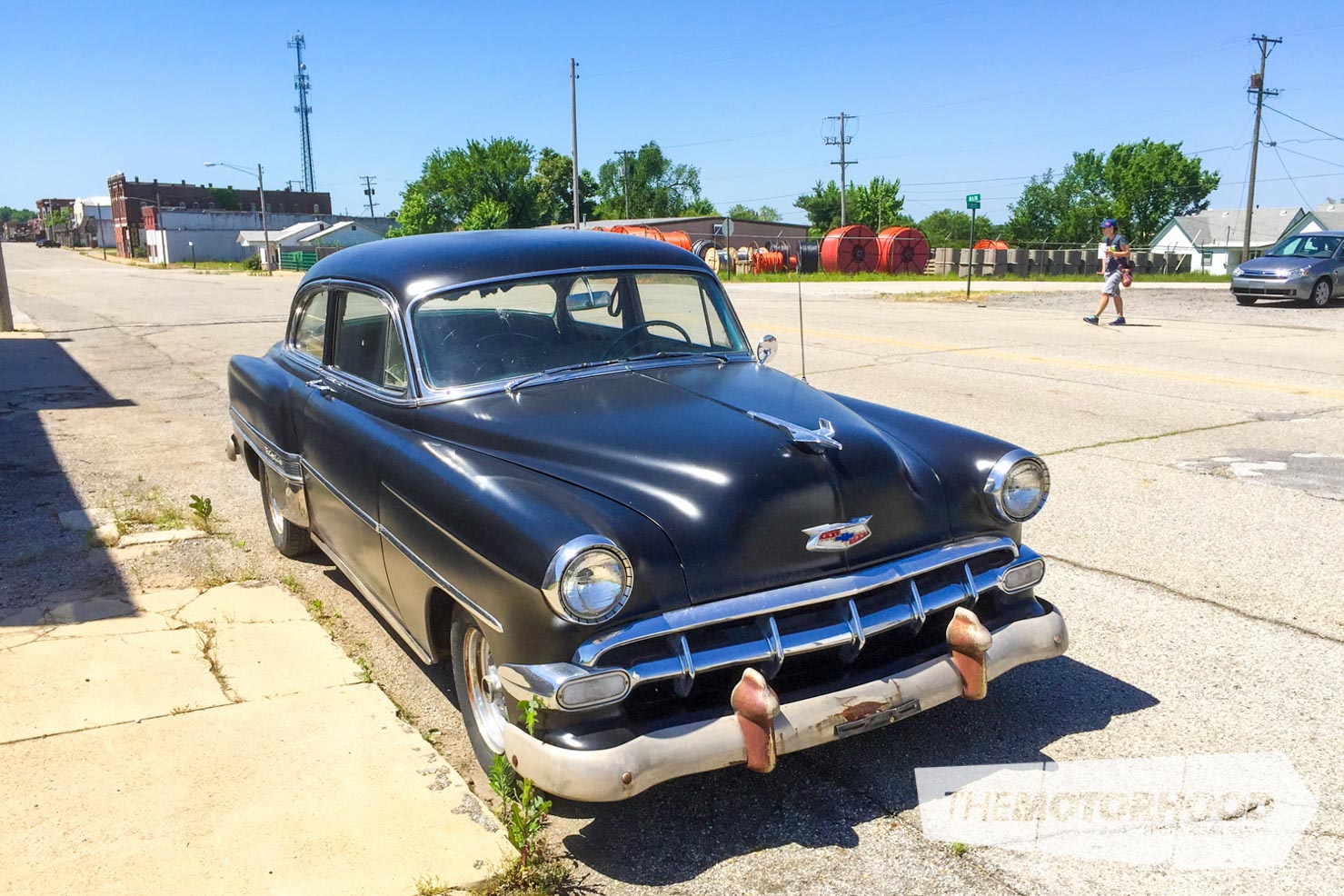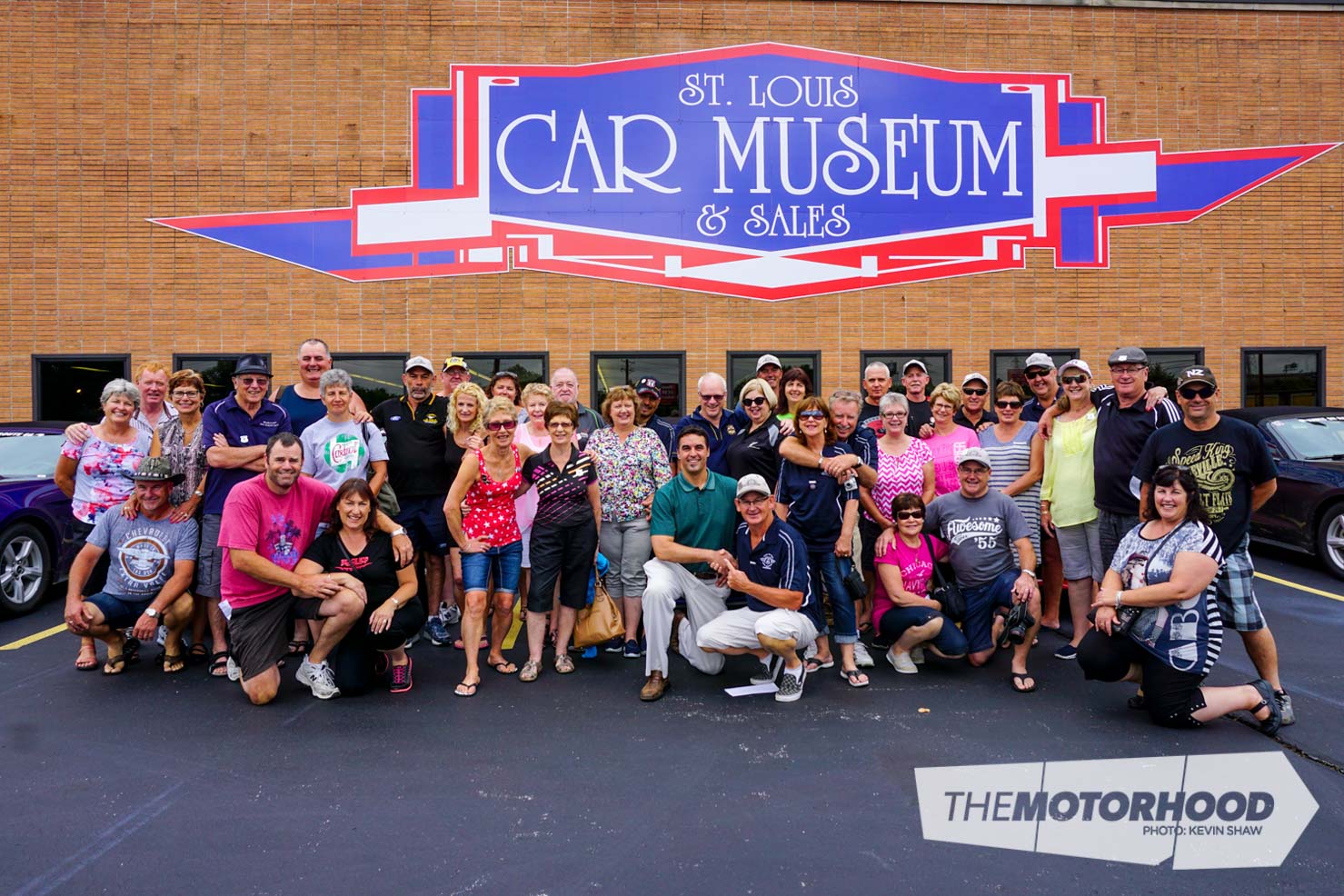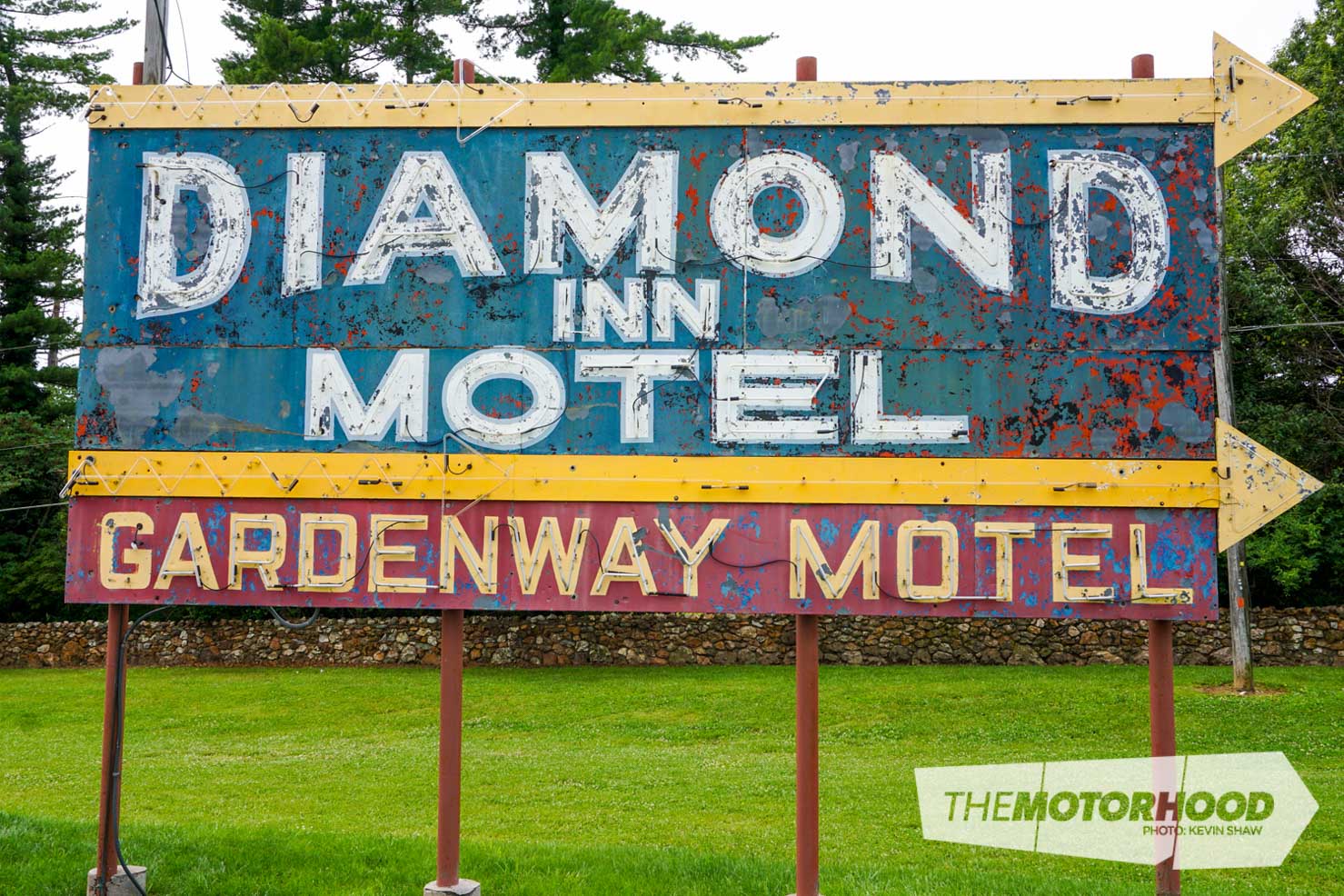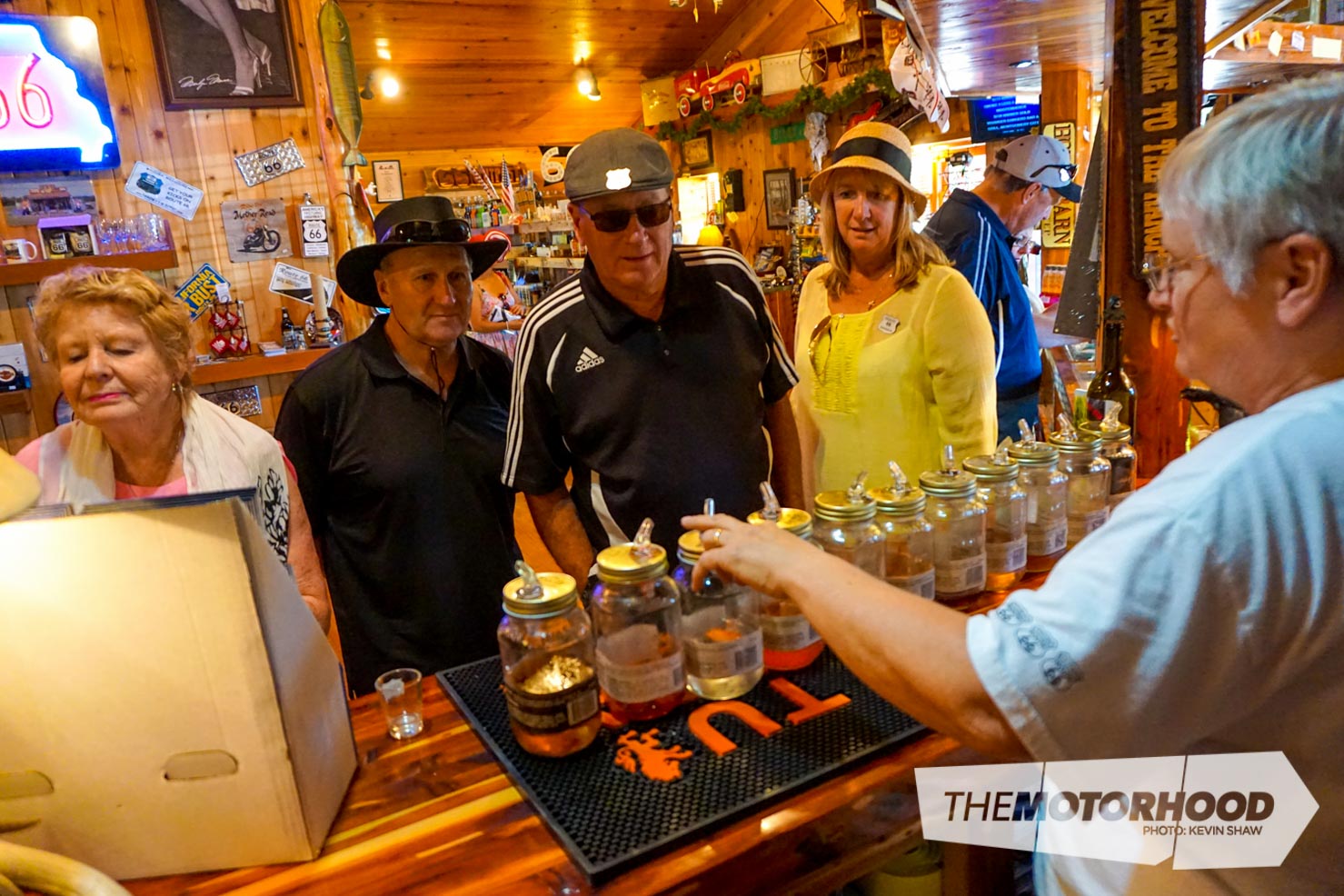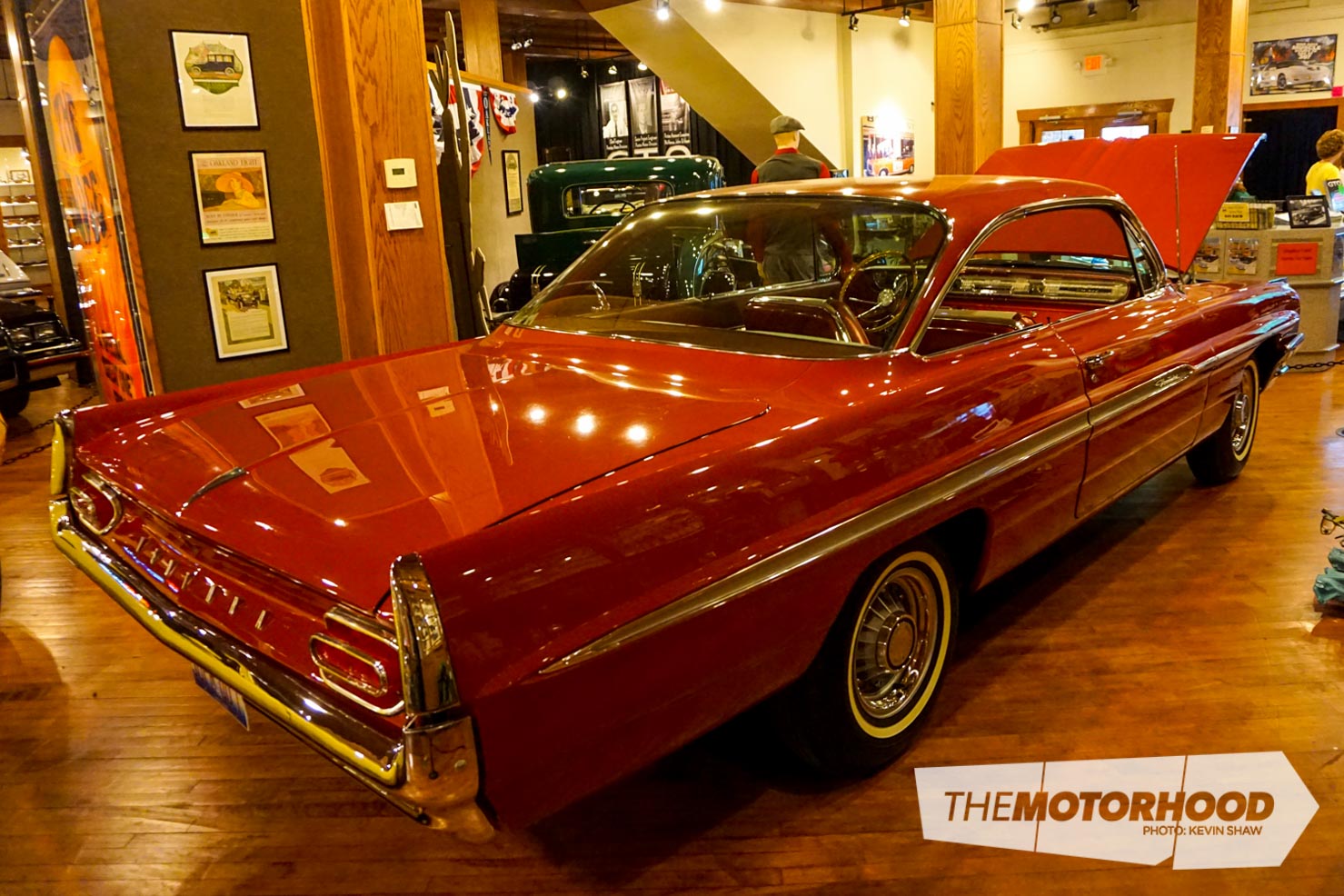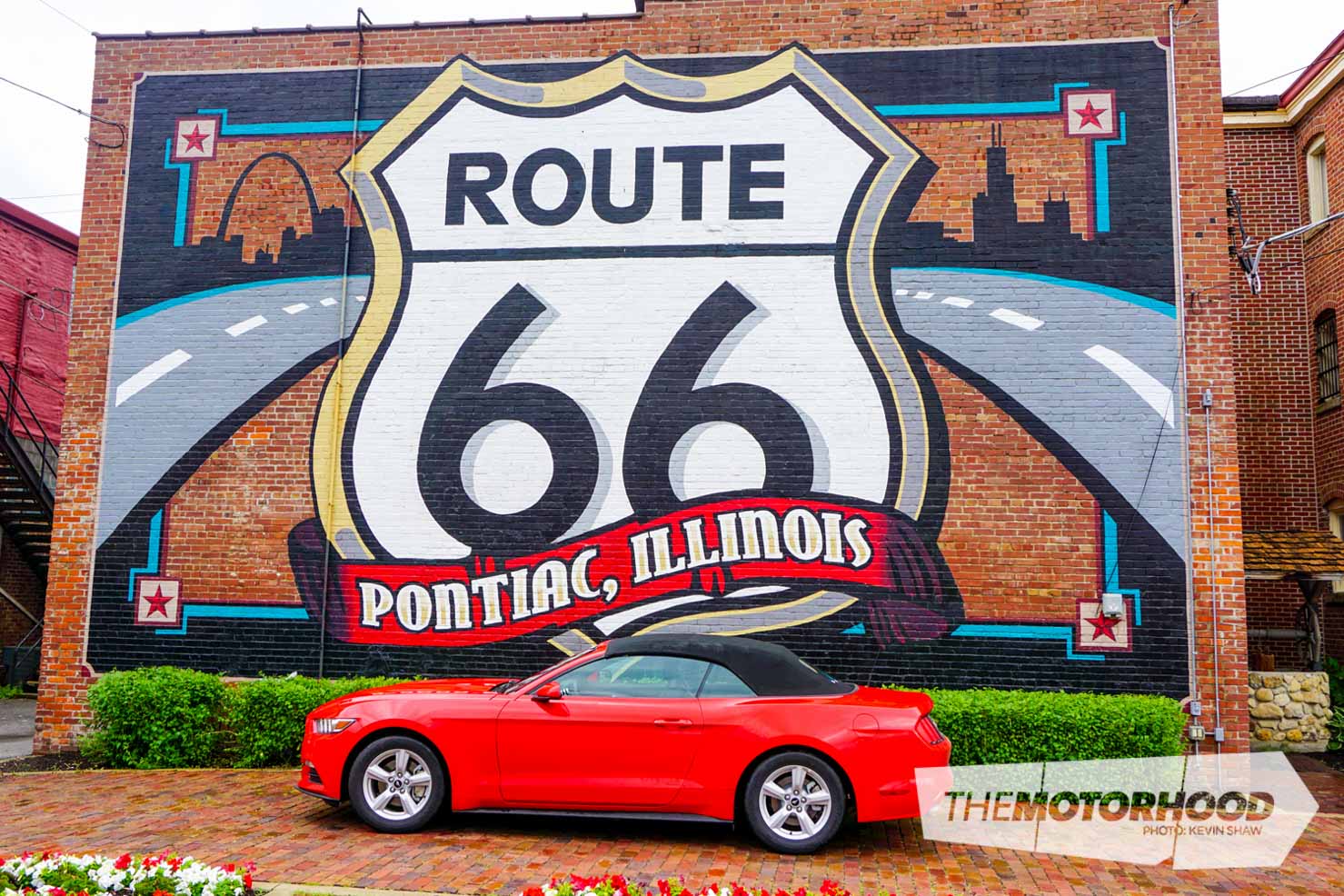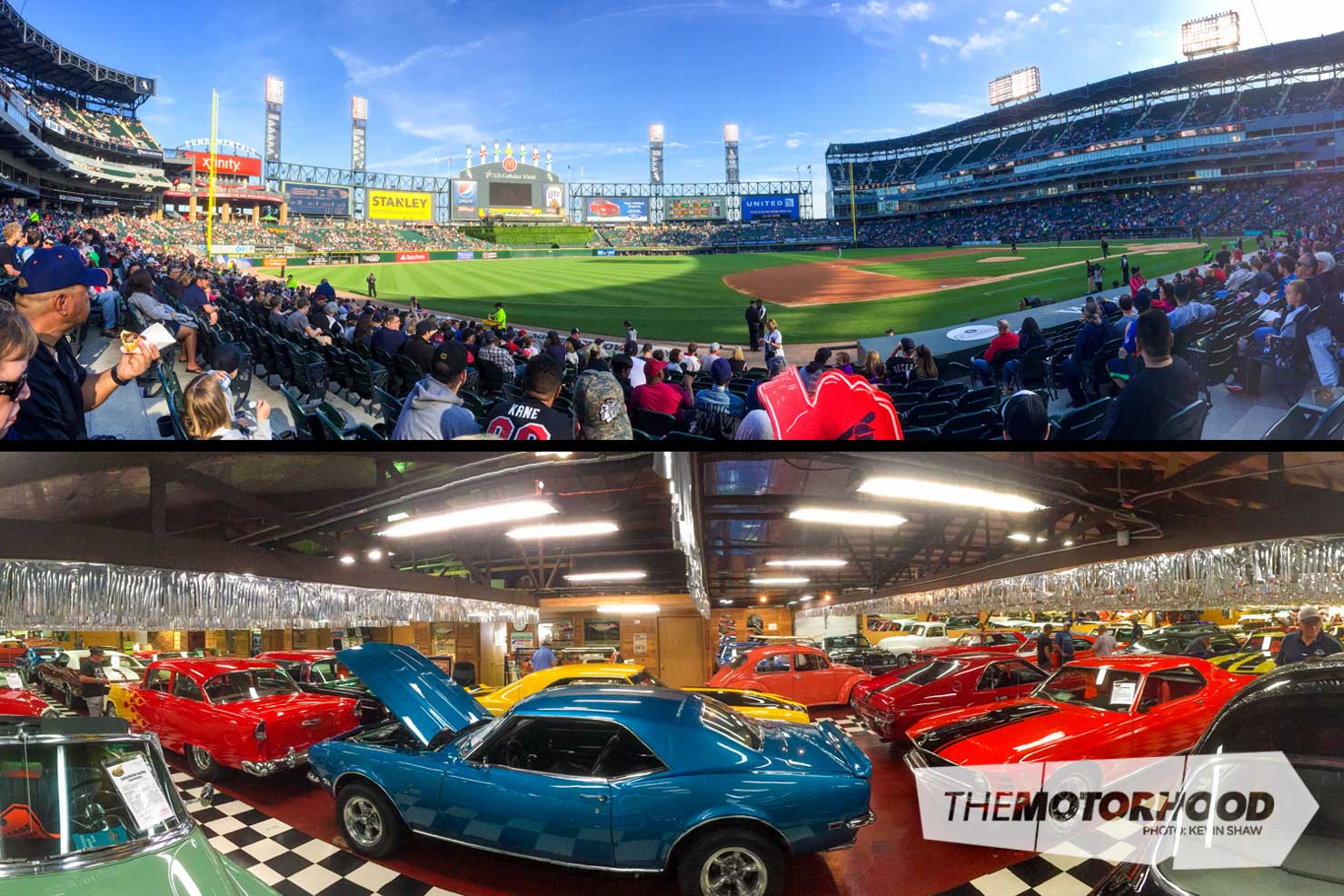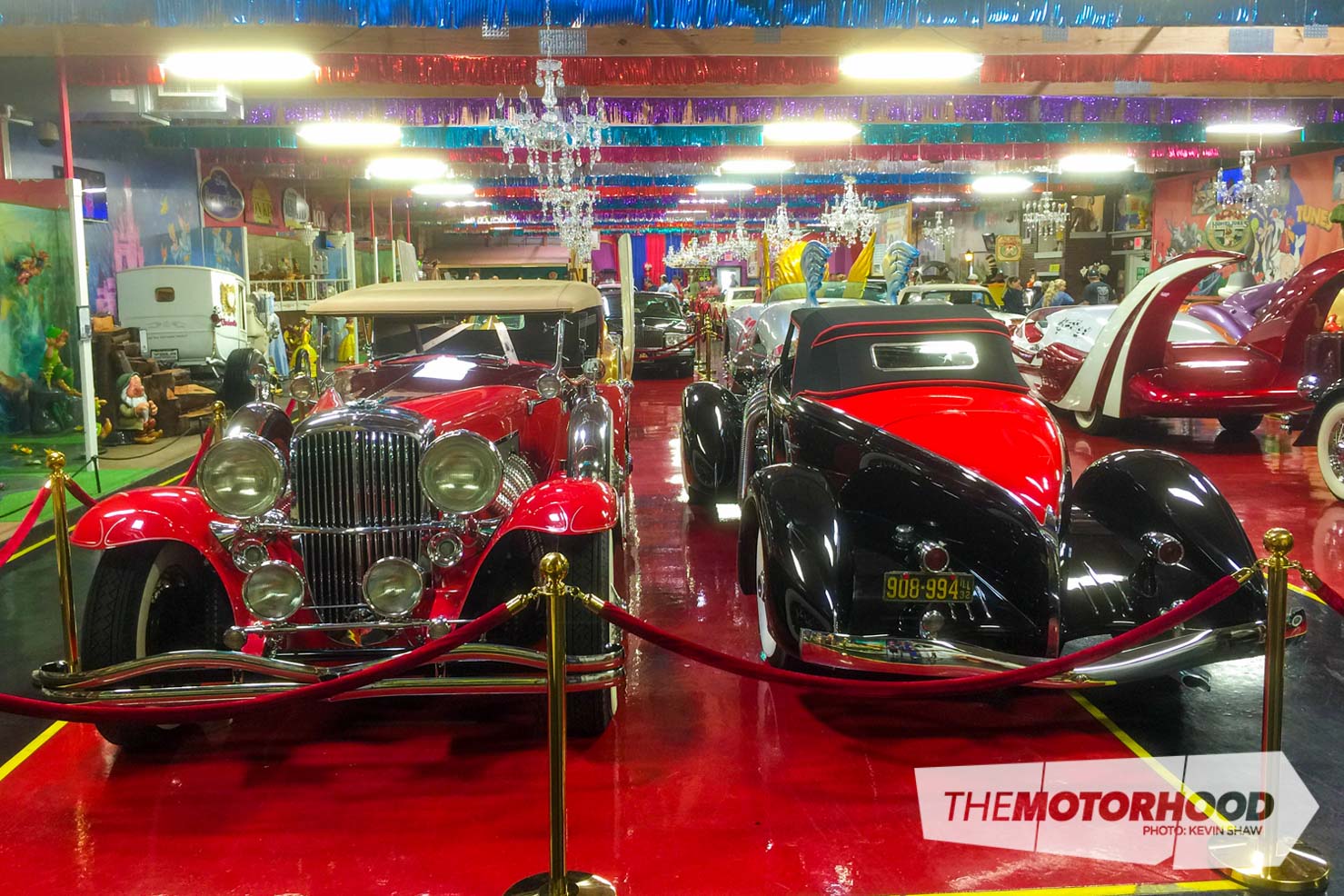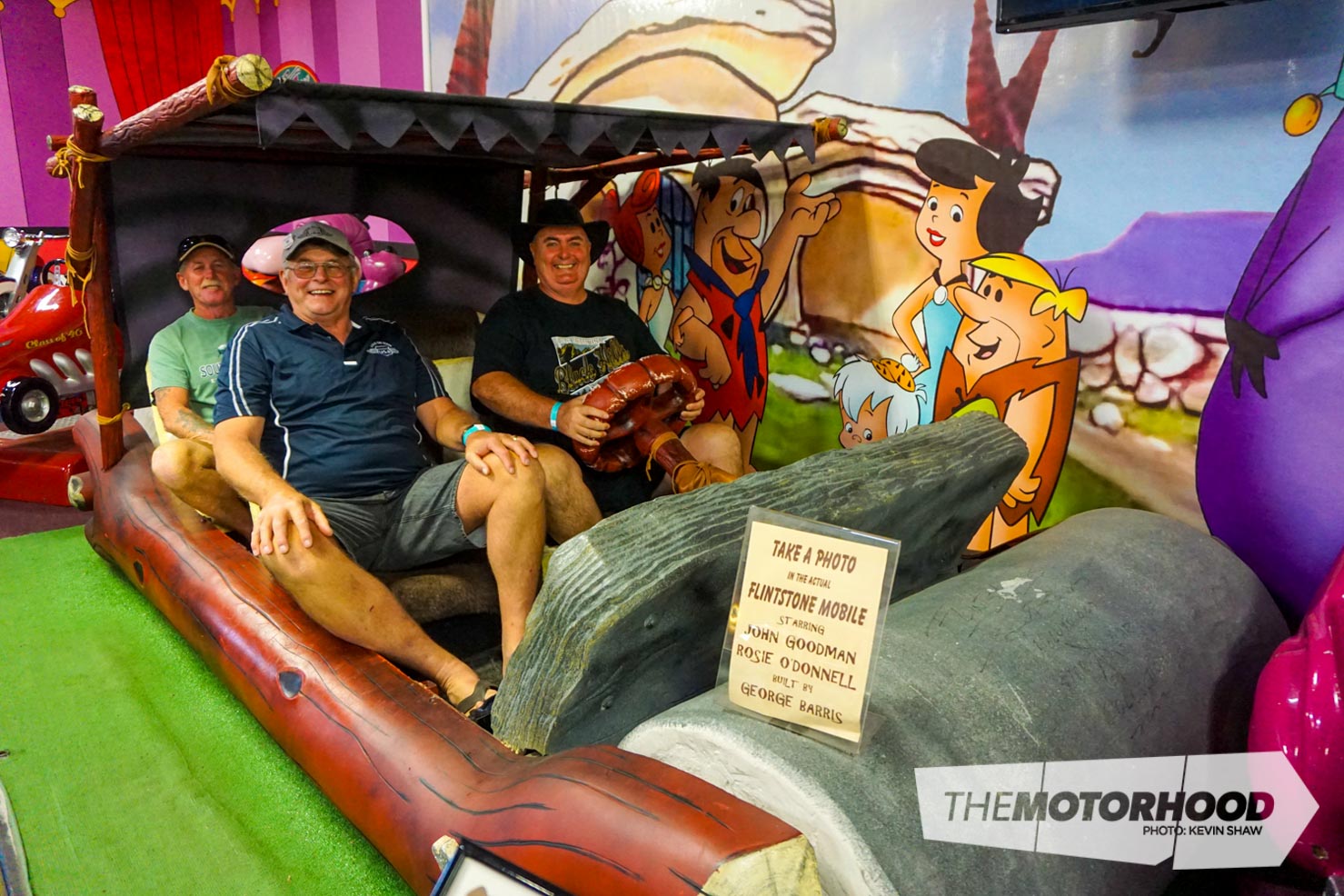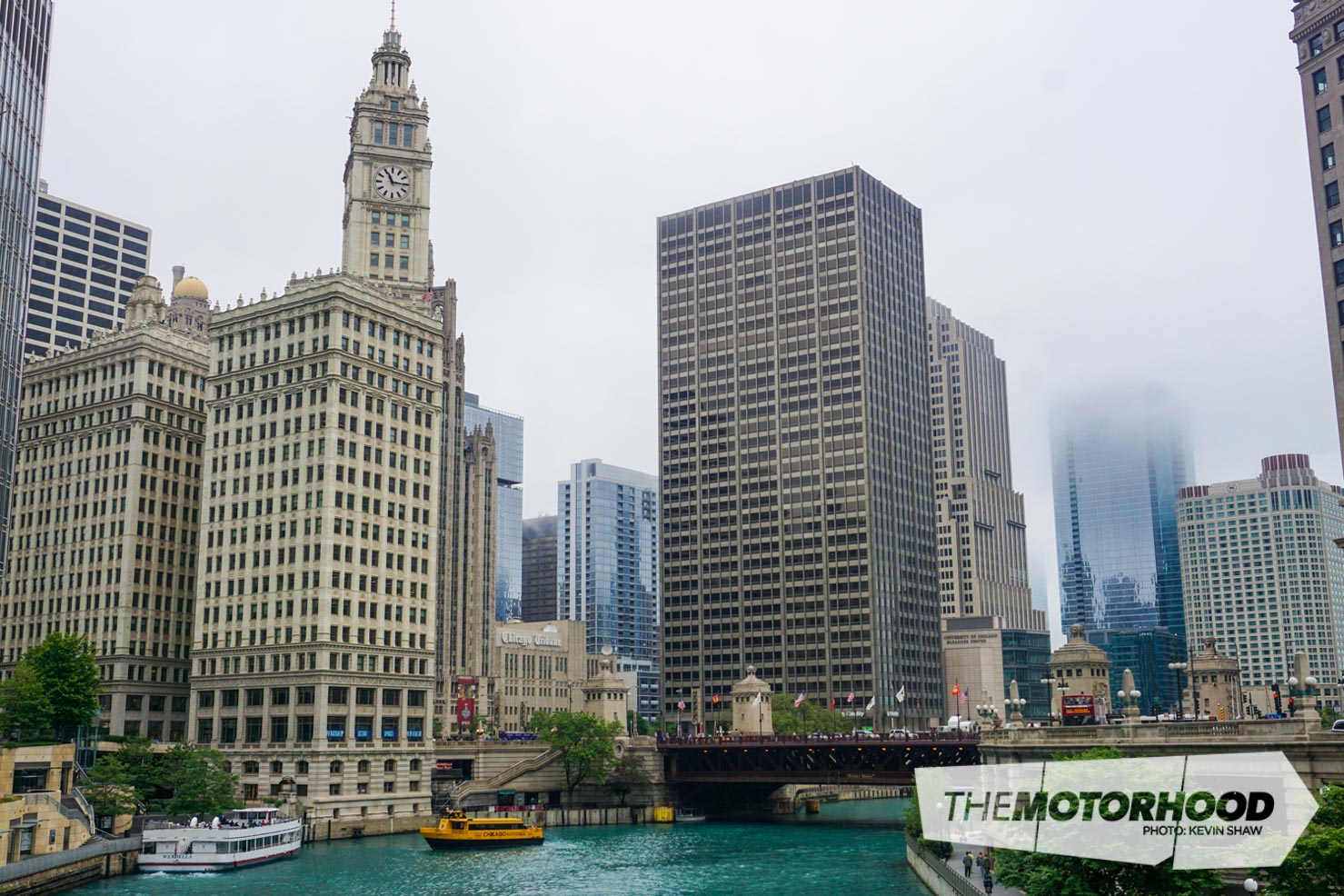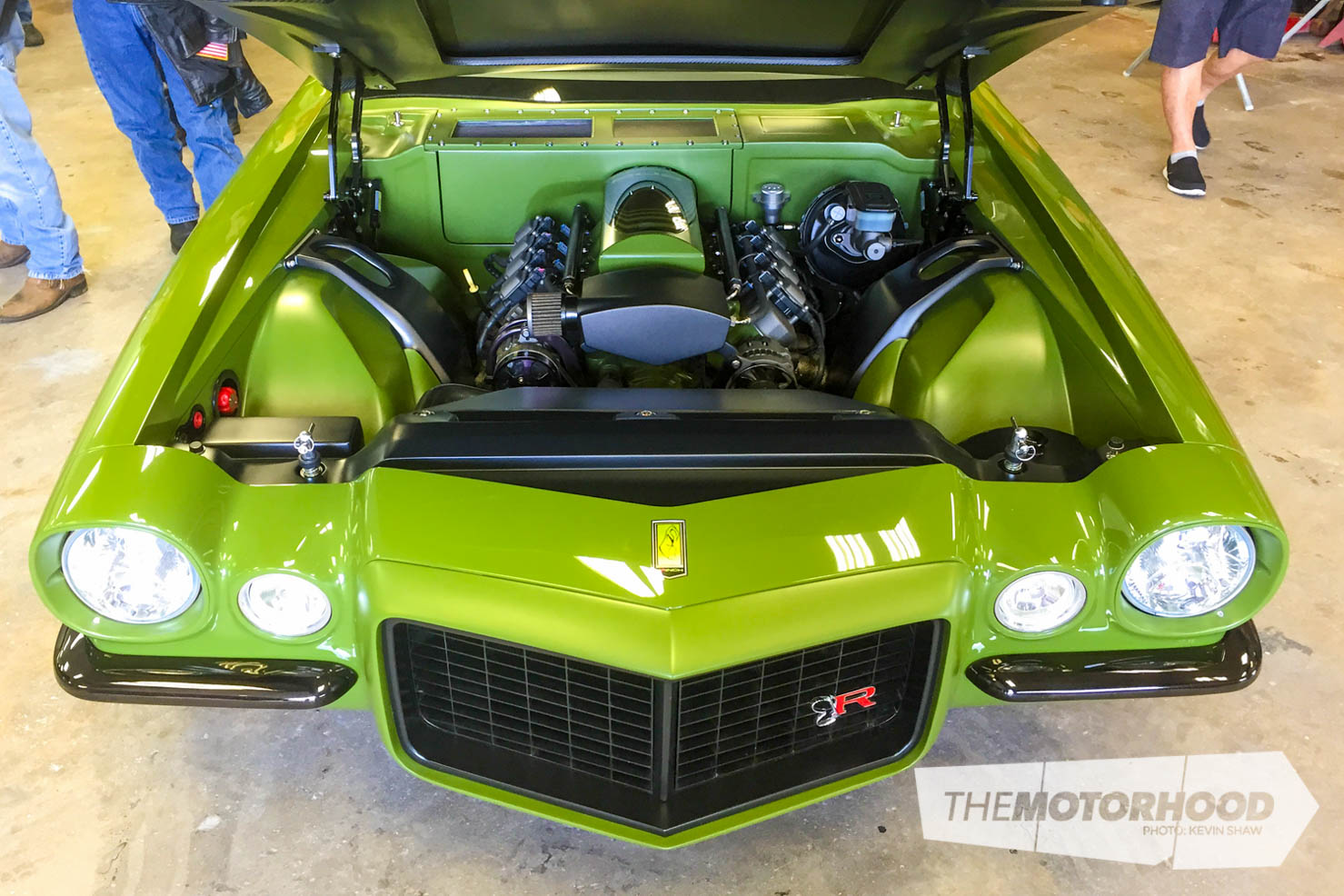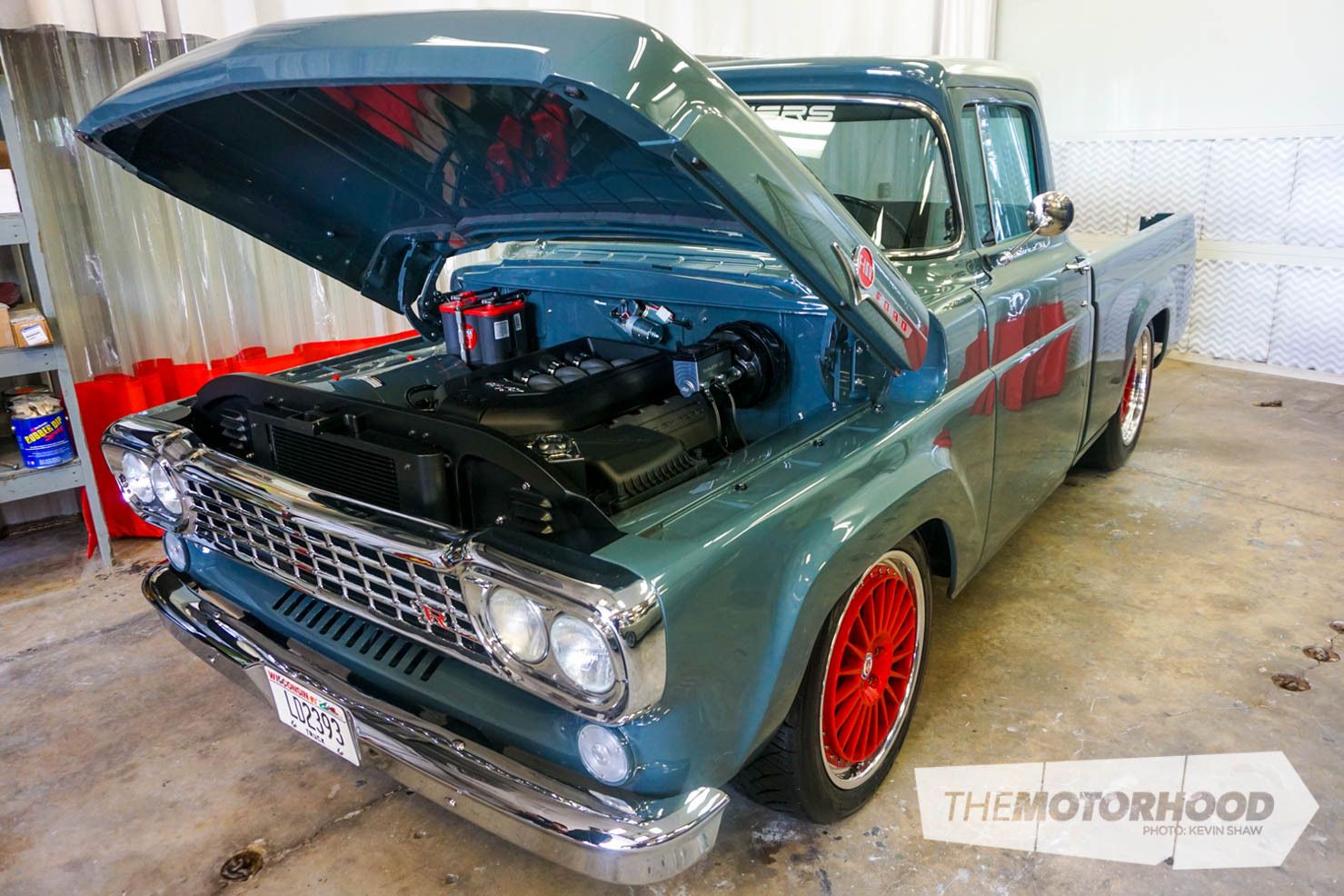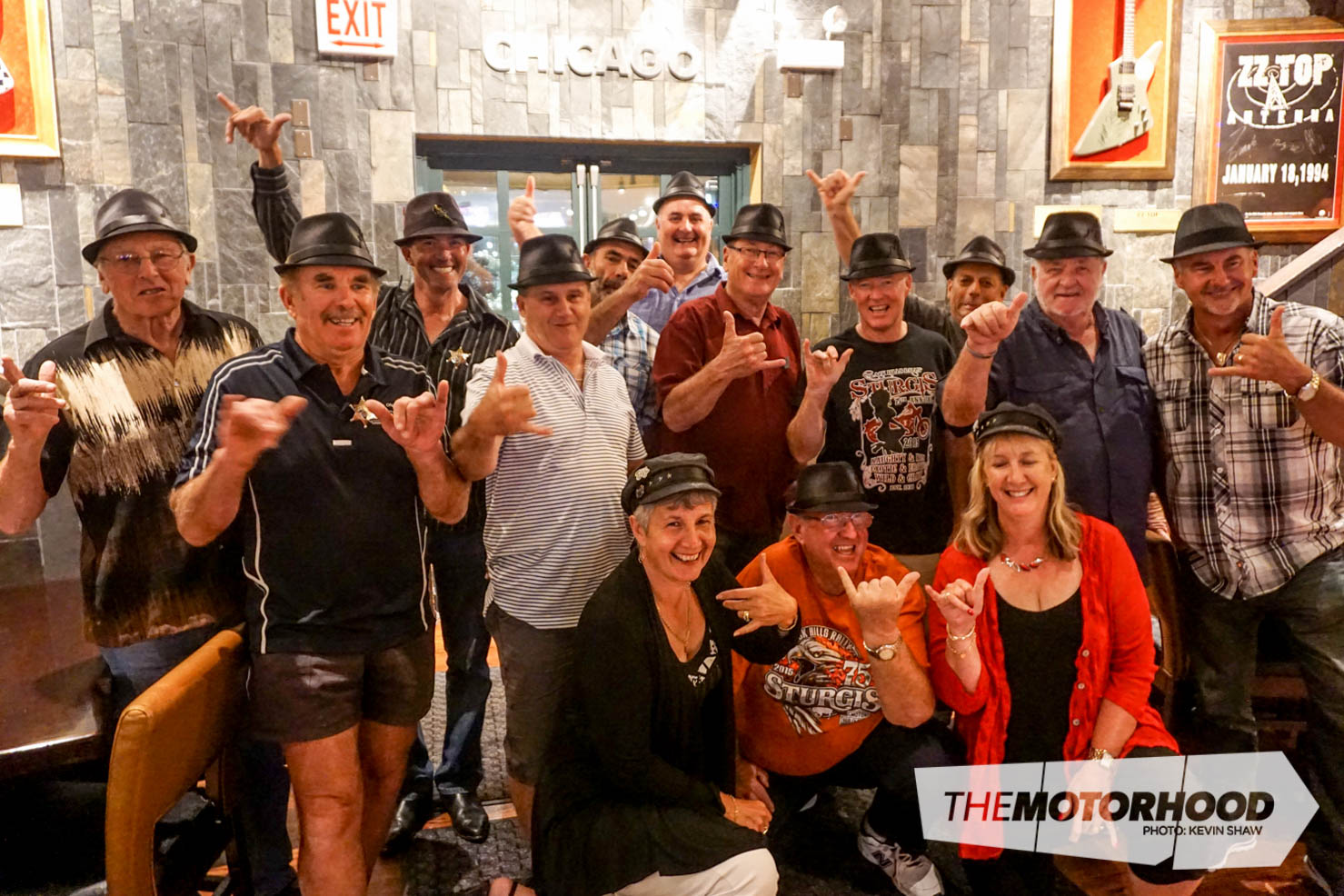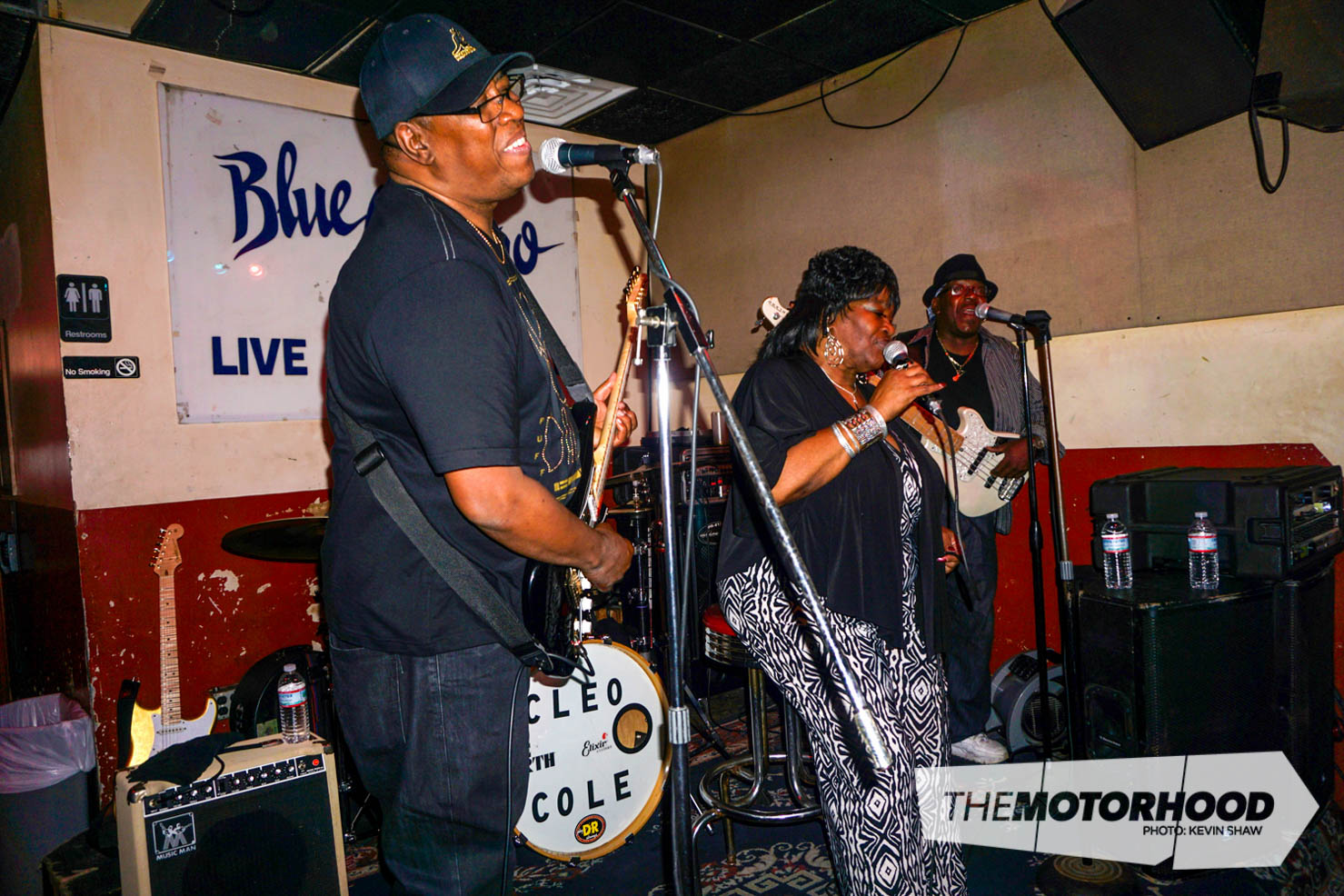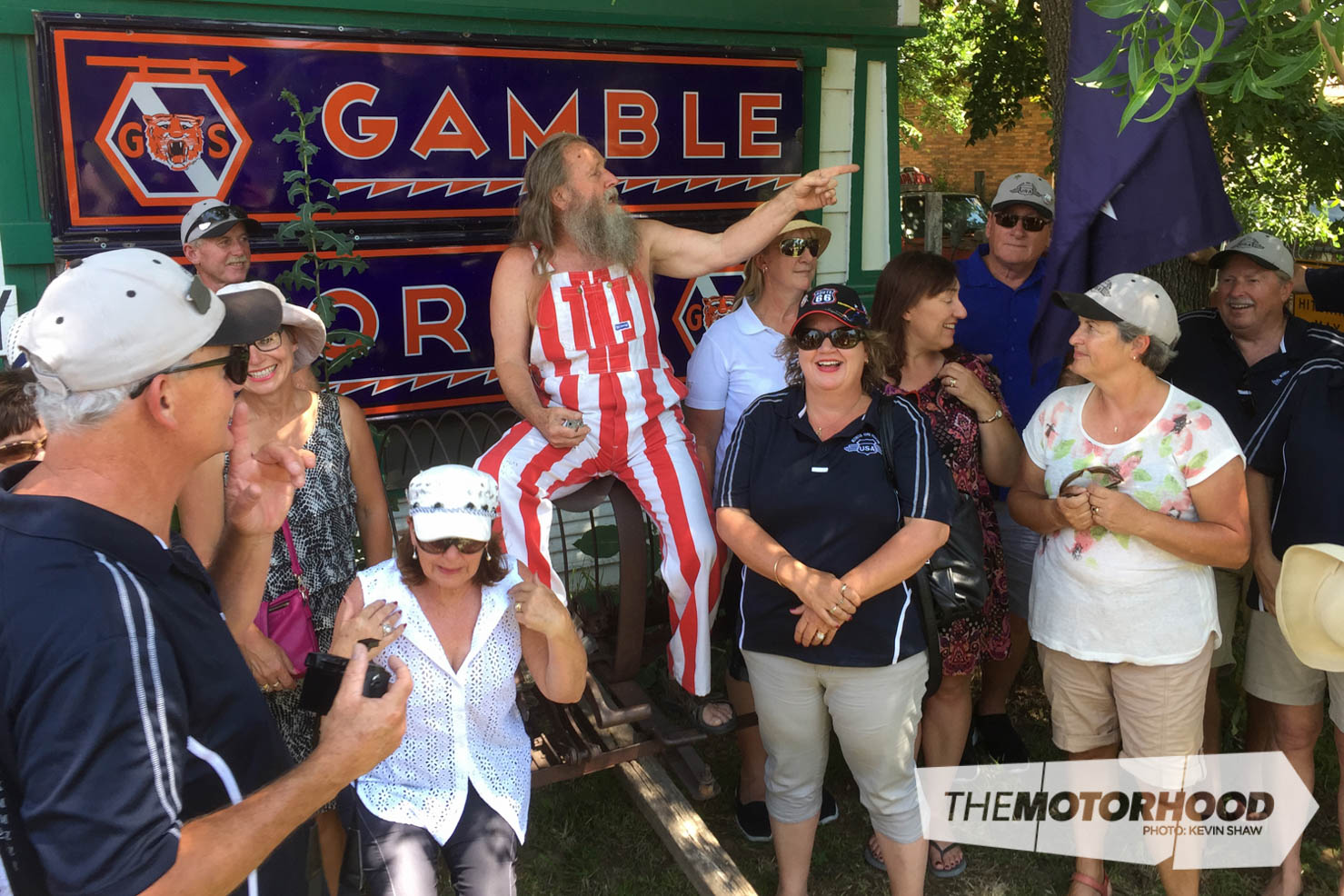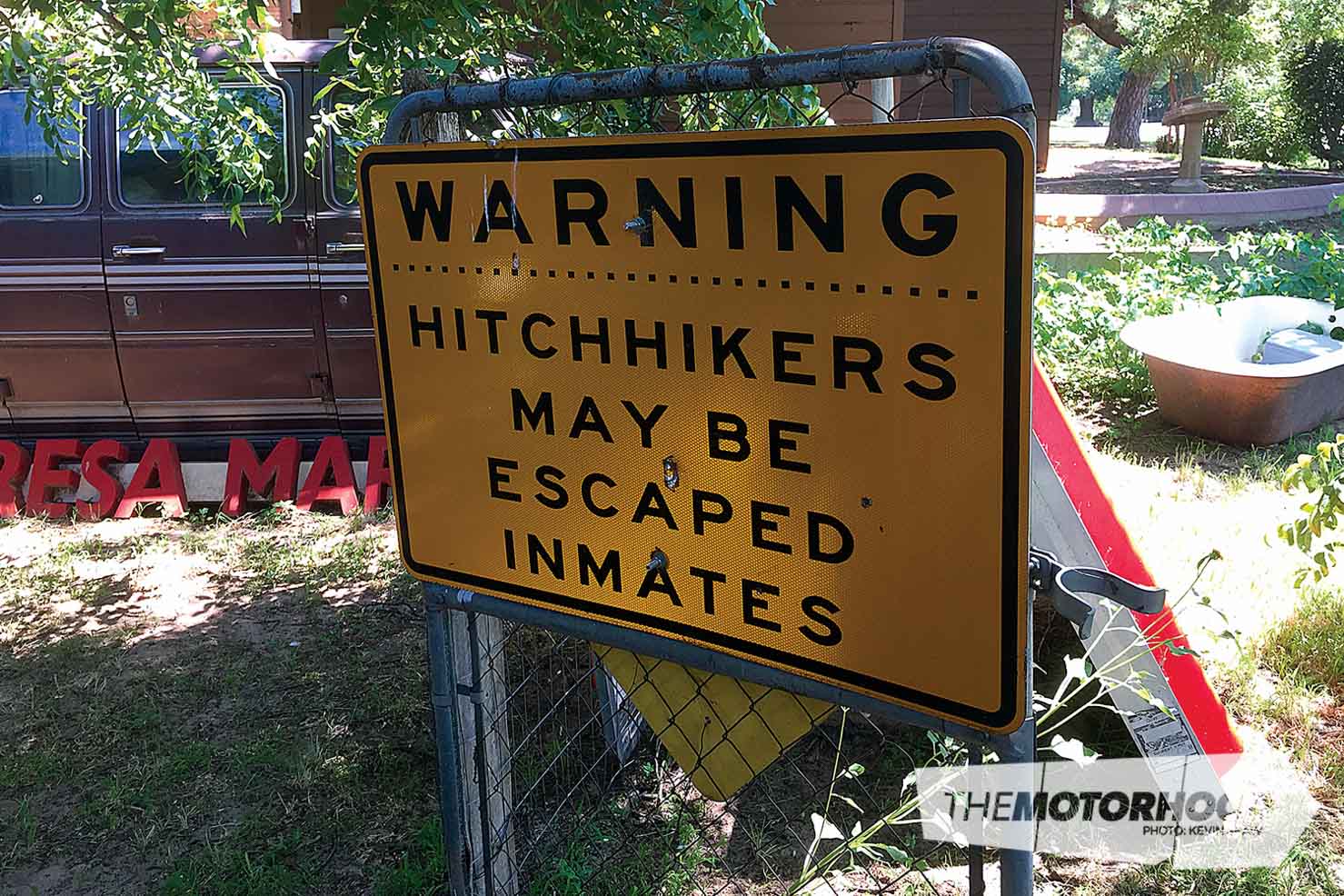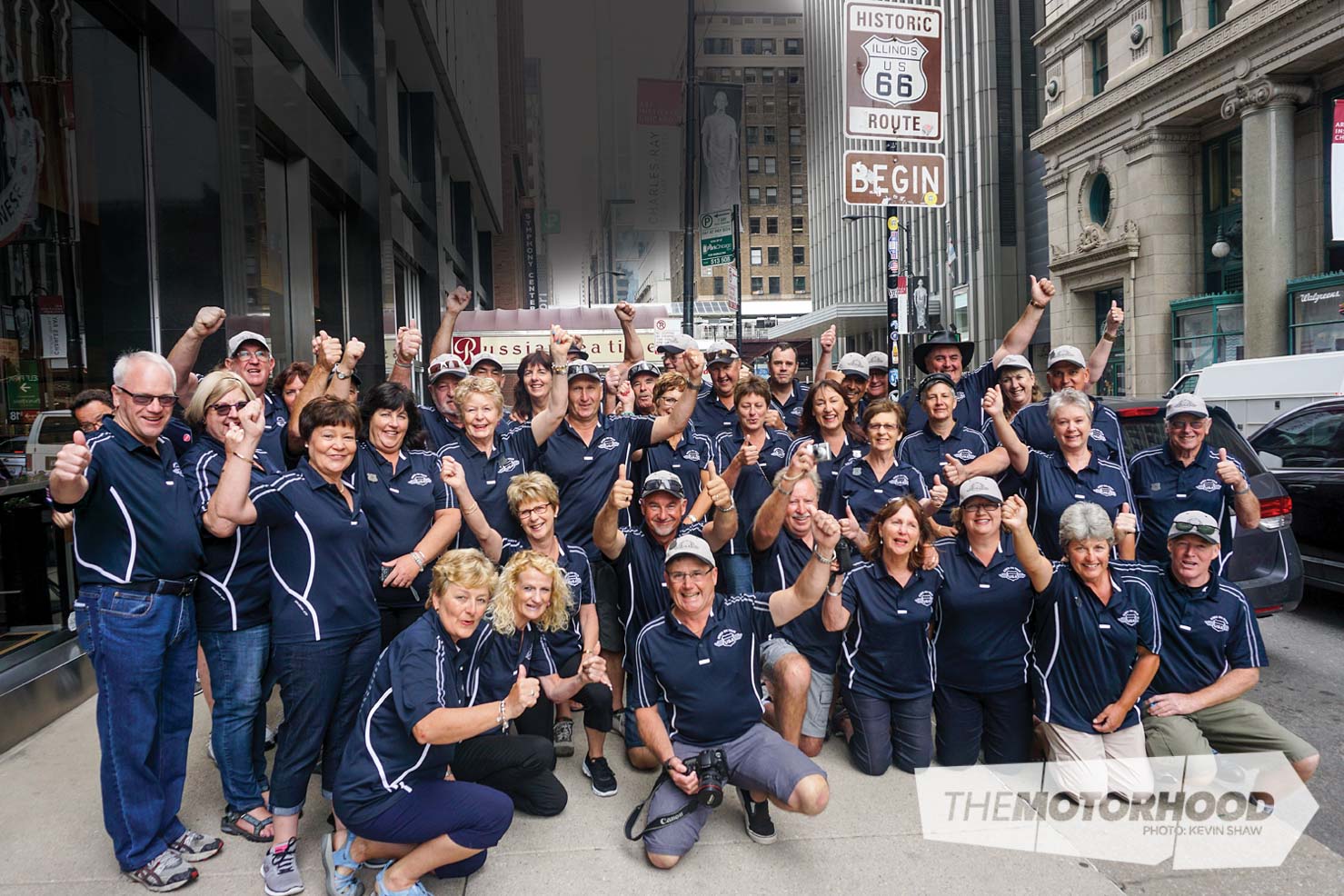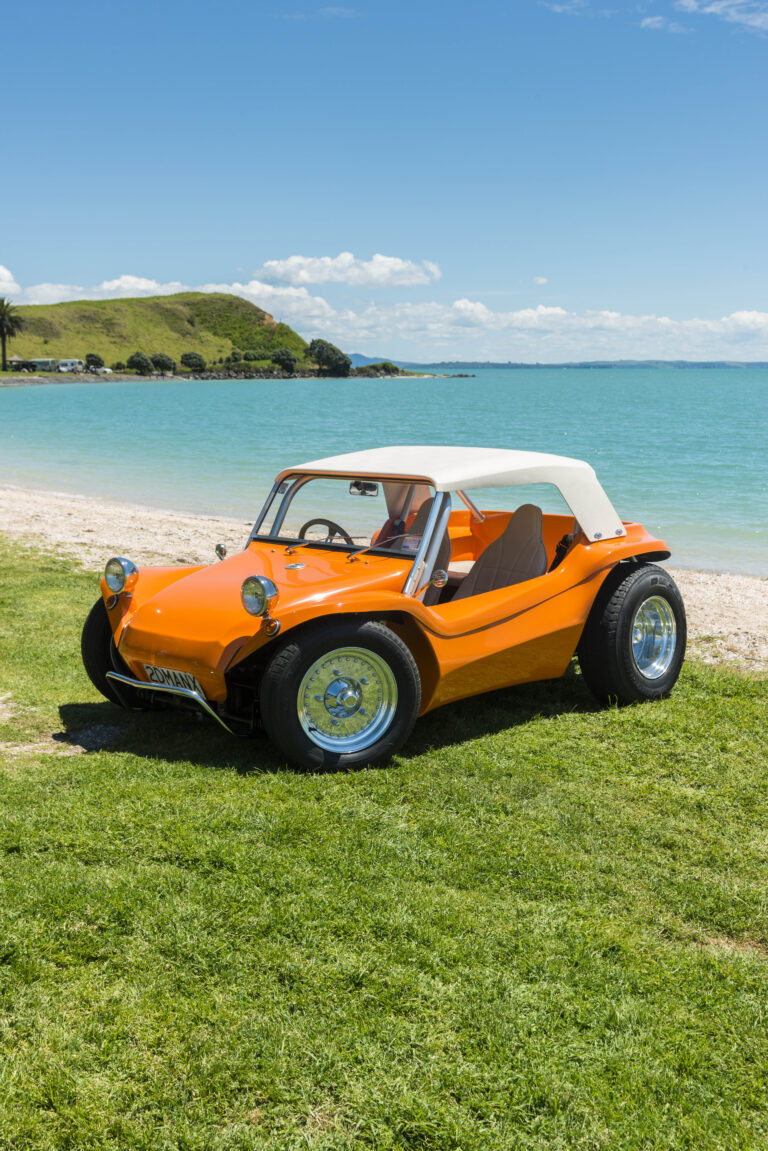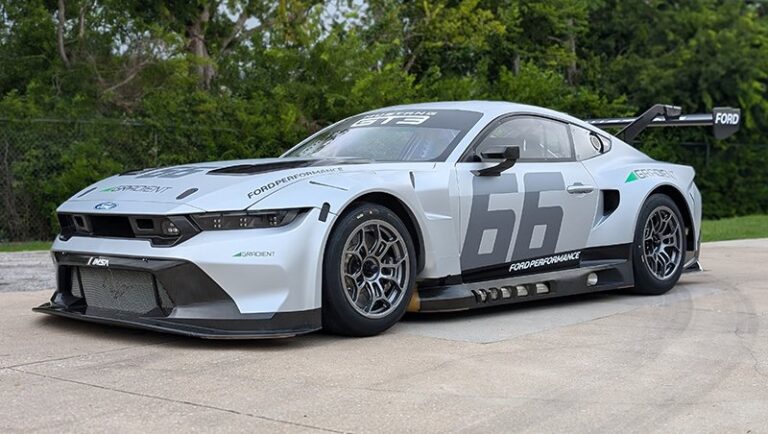data-animation-override>
“Long-time hot rodder and NZV8 contributor, Kevin Shaw, embarked upon a month-long trek across the North American mecca of motoring — Route 66. Here’s what he discovered”
I have had a bit of feedback from part one of ‘The Route 66 Experience’, so, for anyone thinking of doing a journey like this, you can research as much as you like but nothing beats the knowledge of an experienced travel guide like Noddy Watts. Likewise, we could have gone on one of the bus or minivans tours of Route 66, but we wanted to drive the US ourselves. Being part of a large group, as we were, is great — you catch up in the mornings over breakfast and in the evenings, but most days you travel alone or in small groups to please yourself.
The other beauty of a self-drive tour such as this was that we could stop where we wanted. Resuming where we left off last issue, rather than follow the script on the 300-mile drive from Sioux Falls through to La Crosse, we detoured off the I90 to see what real rural America was like. We soon discovered that much of small-town America is not the place to be, with most towns we saw in decline; shops either closed up, or having closing down sales. While the clothing store offered my wife some fantastic deals, the owner told us of the steady decay that has been occurring in the regions. Internet sales and migration to big cities have left the small-town store owner with few options, and this long time retailer was expecting to spend the rest of her life paying off the debts from her failed business.
Stopping in at Fort Jackson, just off the interstate, we got a good insight into early life in the area with papers from the 1790s on display. Listed in the classifieds on the front page were auctions that included one for the services a ‘Negro’ boy of about 12 years old for a period of 15 years — thankfully, we have moved on since then. From there, we headed to a town named Blue Earth — strange but true — the home of the Green Giant, a well-known character who apparently appears on the sides of cans of peas. All I know is that he dwarfed me. About 40 miles from La Crosse is St Charles, Minnesota. This is Amish country, and there was a great selection of handcrafts and the chance of good food from the Amish bakery before we crossed the Wisconsin border to La Crosse. What a great town this is, steeped in history. We got to see the giant Hiawatha next to the Mississippi before taking a paddle boat ride up the river. It was a great evening full of laughs, with plenty to see on the sunset river trip, and complimentary pizza and beers — a tough way to end the day!
Heading out from La Crosse, it was rural roads for much of the way to Chicago, through quaint little towns like Coonville, Kickapoo, and Gotham, before we arrived in the sleepy hollow of Spring Green — home to Ringbrothers.

These guys build some of the toughest cars on the planet: cars such as Recoil, the 1000hp LS7-powered 1966 Chevelle that stunned everyone at SEMA last year — and was featured in NZV8 Issue No. 118; the Grinch, an LS-powered 1970 Camaro; and numerous other muscle cars. Currently in the build is a really tough tube-framed and wide-bodied ’65 Mustang, with a custom Ringbrothers carbon-fibre body. It is being built for a Russian customer. The car is LS powered, at the request of the customer, and everything on it has been hand fabricated in-house. We were fortunate that Ringbrothers was setting up for an open weekend the following day, so plenty of cars and projects were on display. Mike Ring admitted that, even though they try to keep the shop spotless, it is normally never as clean as it was when we were there. It was great that they opened the place up to us so we could wander through the various bays to check it out, while Mike gave a great commentary of what was what and how much things cost. In case you’re wondering, the workshop truck could be yours for a mere $120K, whereas the carbon-fibre wide-bodied special is around $500K.
After the shop tour, we got to have a look through the infamous ‘Ringabago’ motor home — a 1972 Brave Winnebago that has had the Ringbrothers treatment. While it looks stock, you can bet that it isn’t. Weighing in at 10,000lbs, the Happy Camper has everything a happy camper needs: mini bike, BBQ, cooler, complete bar with neon signs, etc. — oh, and a 900hp supercharged LS engine, visible through windows in the floor, that propels the vehicle to 100kph in around four seconds. Of course, Mike was more than happy to demonstrate, putting on a little acceleration show that was a real treat. Funnily enough, the cops showed up to have a look around a few minutes later — coincidence? You can see more on the Ringabago here.

From Ringbrothers, it was back onto the interstate for the fun run into Chicago, something we were dreading — with good reason, as it turned out. We arrived pretty much smack in the middle of rush hour, and, with four or five lanes in each direction gridlocked, the last 40 miles took a couple of hours. The off-ramps were hard to get right — I mean, who plans an A, B, C, D, etc. suffix for the same number off-ramp, and then has ‘D’ coming before ‘C’? Everyone got there in the end, and, as per Noddy’s estimate that morning, everyone was in by 5pm. We were the last car in, at 4.58pm, with just enough time for a quick clean-up before the stretch limos arrived to take us all out to discover Chicago!
To quote Frank Sinatra: “Chicago, Chicago, that toddlin’ town, Chicago, Chicago, I’ll show you round, I love it …” and there is no doubt that it has a bit to love. Noddy was determined to show everyone a good time. The limos arrived on cue and we were off to the Hard Rock Cafe to start a great night out on a beautiful evening. From the Hard Rock Cafe it was a short walk to Blue Chicago, one of the oldest blues clubs in town. While blues may not be everyone’s cup of tea, the atmosphere was amazing — the music was loud, and the air was hazy, with pretty much everyone up dancing and singing and just having a great time into the wee hours of the morning. Noddy’s directions home were a tad out, though, with his “20 minutes or so” walk back being at least twice that — or maybe everyone just had their wobbly shoes on and it just took a bit longer.
Friday morning started with everyone meeting in the lobby at a civilized 9am to walk a couple of blocks to the official starting point of Route 66. After a fairly humorous photo session involving a bit of pole dancing, we were free to sightsee as we fancied. As it turns out, Chicago is a bit like Wellington — on a good day there is nowhere better, but when the clouds come down and the wind off the water from the north is hitting you hard, it’s a different story. Everyone got out and about, though, and seemed to have a great day. We were fortunate to find the oldest Italian restaurant in town, operating out of the same building since 1927 — the food at the Italian Village is to die for, and their tiramisu followed by espresso martinis was the perfect way to end the evening.
Thankfully, Saturday’s weather played ball, and the girls went shopping while we went to check out a massive car museum on the outskirts of Chicago. I have known guys who have purchased cars from museums in the USA, and figured they were special or unique — until the visit to the Volo Auto Museum. With full-time buyers scouring the country and a couple of salesmen on-site, I quickly realized it was just an indoor car yard with a few specialty cars to legitimize the ‘museum’ name. Not that the cars on show were bad — there were some fantastic and rare muscle and classic cars on display, and they were generally priced pretty well. With five big barns full of cars, there was something for everyone, and I know I wasn’t the only one wishing that the lotto win had come in time for this trip. Volo also has one of the largest Duesenberg collections around, with 11 on display, which made the price of admission worthwhile for me.

We couldn’t spend a month in the US without experiencing a ball game. One of our group managed to get White Sox tickets for Saturday night. He also spent an hour at the ticket machine buying train tickets for us all, and provided clear directions in case we got split up — thanks, Ian! White Sox supporters are a bit like Warriors fans who come along week after week, hoping for a win. The White Sox won the World Series in 1906, 1917, and then 88 years later in 2005. Despite them only winning three titles in 115 years, we were all Sox fans for the night, yelling, cheering, drinking beer, and eating hotdogs and the amazing Garrett’s popcorn with the locals — what a great night out!
Finally, the day we had all been waiting for was here — the day we would start the real Route 66 tour, and everyone was looking forward to some more top-down cruising. Unfortunately, the Chicago weather had other ideas; as we left the hotel, the storm clouds started rolling in. Before we had cleared the city limits, the heavens well and truly opened with hail and heavy rain. We regrouped just down the road in Joliet, where Noddy dashed from car to car, giving us our Route 66 USB sticks for the GPS, and a bit of quick training, too. By the time we left there, he was well and truly soaked — the joys of being camp mother!
Once back on the road, it was a short run along Route 66 to The Gemini Giant, our first real attraction on the trip. Every now and again, Lady Luck smiles on you, and as we stopped at The Gemini Giant in our rented Mustang, we got talking to a guy in a near-new Camaro convertible who was there with his son. He asked if we were part of the ‘Power Tour’, and boy did that get our attention! After a brief conversation, we discovered that day two of the Power Tour was in the town of Champaign only 100 miles or so away. Unsure how that would impact the planned drive to St Louis, or if was even in the right direction — it wasn’t — we reset the GPS and headed to Champaign. The day we were there, 5400 cars were entered. That’s almost five times the number of cars that come to the Beach Hop, in a town about the size of Palmerston North. It was an amazing experience, and you can read more about it here.
Bailing from Champaign mid-afternoon, we hightailed back on track as best we could, but ran out of time to stop at all the sights, and, sadly, missed the Pontiac Route 66 Museum. Thankfully, everyone else took plenty of pictures to show us what we missed, but I still think we had the better day.
Entering St Louis that night, the GPS changed its name from ‘Never Lost’ to ‘Very Lost’, as it was oblivious to a series of new motorways leading into town. Let’s just say that it was entertaining watching Mustangs heading in all directions trying to find the hotel. At least we got to see the St Louis arch a couple of times without trying to, and everyone was glad to find the bar after they finally found the hotel. Noddy also made sure we found the ‘Fireball’ cinnamon whiskey, but that’s another story.

St Louis gave us the opportunity to check out another car ‘museum’, but at least this one was being upfront, named ‘St Louis Car Museum and Sales’. Museum or indoor car yard, it had a fine selection of cars from Model As though to a new ragtop Camaro SS, as well as a few immaculate matching-numbers muscle cars. There was a couple looking seriously at what was on offer, and I’m sure that, if the dollar hadn’t started to slide, there could have been a nice GTO parked in Howick about now. Joel took us all on a great tour of the place, including the workshops out the back, and showed us the boss’s toy collection out there, too. It appears the owner is a real enthusiast, with a great taste in classics, muscle cars, and old boats.
Leaving the museum, it was back onto Route 66 for the Meramec Caves — a labyrinth of limestone caves used by Jesse James as a hideout, with an underground river he once used to escape capture. While some went for the full tour of the caverns, we elected to charge onto the recently restored Wagon Wheel Motel before stopping at the Giant Rocking Chair for refreshments. They have a huge selection of moonshine available, and plenty were keen for a taste. The Sweet Waters Smokehouse was the stopping point for lunch, and we were treated to massive meals of ribs layered in marinade and smoked to perfection. Those who were not sleepy from the moonshine probably were from the massive feed, so it was a slow drive from there along the narrow old Route 66 to the last stop for the day, at the World’s Largest Gift Store — the perfect place to shop for hats for the ‘silly hat night’ later in the week.
Springfield was not as expected, with no big nuclear power plant or three-fingered yellow characters wandering about. Pulling into the motel with a couple of old Fords sitting out front to greet us just added to the charm. Rather than being a town in decline, like many we had seen along the way, Springfield seemed relatively prosperous, well kept, and welcoming, as a short drive around town that night confirmed. Springfield is recognized as being the birthplace of Route 66, as it was in Springfield on April 30, 1926, that officials proposed the name of Route 66 for the new Chicago to Los Angeles highway.
The next morning was a sad affair, as we stopped in at the Old Gas Station in Ash Grove that was rebuilt by Gary and Lena Turner many years ago. A retired truck driver, Gary was one of the real characters of Route 66. He would entertain people with the history of the place and the mother road, all the while giving away free sodas to anyone who fancied one. A quick visit would stretch into hours, Sadly, Gary died in January this year, and Lena just a few months later. Noddy was a regular visitor here and knew them well, and hearing him speak so fondly of them and retelling their stories was a moving experience — there was not a dry eye among us!
Heading from there to Oklahoma would take us through three states, with a world of different sights to experience. Exiting Missouri, we’d pass through Kansas into Oklahoma. While we would be in Kansas for only 13 miles, this small section of Route 66 is truly world famous.

Galena, Kansas — never heard of it, right? OK, what about Radiator Springs? I’m guessing that anyone with kids or grandkids would have been subjected to watching Cars at some stage, and Galena is the home of ‘Mater’, the International L-170 truck that starred in the film. Galena was dying until Cars was released, and the locals have welcomed the additional Route 66 tourists who now stop off at the restored Kan-O-Tex service station. The town showed us real small-town hospitality — heck, we even had the police close the streets for us, they made us so welcome. The sheriff also showed us country policing in action — or inaction — as a rusty old farm truck struggled past us. When queried as to whether it should even be on the road, the drawled response was along the lines of, “Well I just seen it stop, so it must have some brakes, and the lights appeared to work, so I guess it’s all OK”. After a few photos in Mater, souvenirs from the Kan-O-Tex, and a wander around town, we were off to Oklahoma.
Roy Rogers is a name I always associated with old movies and cowboys, but a visit to the Roy Rogers Museum in Oklahoma taught me a whole lot more. Noddy said to allow an hour there, but we spent two and still came away yearning to learn more about the man of a million quotes. Roy was a man with an incredible work ethic. He starred in 70 movies in just 17 years, wrote more than 4000 newspaper articles, and made countless radio shows and public appearances. He was known to have a quip for every occasion, from “I don’t support an organized political party — I’m a Democrat” to “No man is great if he thinks he is” and “Live your life so that whenever you lose, you are ahead”. By the time of his death in a plane crash in 1935, he had already flown 300,000 miles — amazing for a time when any plane flight was still pretty much a daredevil activity. Roy’s brother, Will Rogers was a trick roper and horseman who became the highest paid stage actor, movie star, radio personality, and journalist of his time. He was a popular national figure who influenced politics for the better through the depression era, yet remained a humble family man throughout it all.
After a couple of hours of history and learning, the rest of the day was a happy series of classic Route 66 photo opportunities at the ‘Blue Whale’ of Catoosa and the Happy Burger, a Phillips 66 gas station, then on to Johns Route 66 Museum, an amazing round barn and a giant soda bottle. This day of travelling had it all, including driving the last section of the nine-foot-wide pavement of the old Route 66, which was taken out of service in 1936!
Leaving Oklahoma, we had a short driving day to Amarillo, a mere 259 miles through the land of the Cheyenne, cowboys, and oilfields. While the miles may have been low, the list of things to see was huge. Today was one of the few occasions when we had a time-critical appointment — one Noddy was adamant we all needed to make. With that in mind, the morning was a whirlwind of historic stops and photo opportunities, from the beautiful historic town of El Reno out to the old fort on Route 66, before heading on to the old mile-long Pony Bridge that crosses the South Canadian River. Lucille’s Gas Station was the next stop on the ‘Will Rogers Highway’ — as this section of Route 66 is known — and then into the Route 66 museum in Clinton. A relatively new addition to the tourist trail, it was full of interesting artefacts and images, and well worth the stop. The National Route 66 Museum in Elk City was also well worth the price of admission, and was also our assembly point for the afternoon’s adventure.

Cruising in convoy for the next 30-odd miles, we entered the town of Erick, Oklahoma, which prides itself on being the redneck capital of the world — a place where you can see rednecks work and play in their own environment. A crazy statement, but nothing on the madness of Harley Russell, who opened his house to us so that we could see how a crazy person lives. Let me just say that no sane person could live as he does. Harley and his wife, Annabelle, are eccentrics, and their house is a jumble of antiques and collectibles, full to the point at which there are just tracks through the rooms amidst all the clutter. Their shop, Sandhills Curiosity Shop, is equally cluttered and a bit odd, as Harley doesn’t actually sell anything from there other than his time. He and Annabelle began their ‘Mediocre Music Makers’ act back in 1999 in the old City Meat Market building a block south of Route 66. The Russells were practising the guitar in the store when a tour group stopped by. Impressed by the crazy couple, the group threw money down on the tables for tips, and the guide said he’d bring more tours by in the future. And so their well-known entertainment career on Route 66 was born. Before long, the couple were entertaining more than 300 tours groups a year with their crazy antics, and making a good living on the tips. Since Annabelle’s death last year, Harley has carried on with the crazy antics, and he kept us well entertained for an hour or so with lots of ‘Hey-heys’ and ‘Yee-haws’, great stories, some deliberately off-key singing, and raucous behaviour, while giving us beers and sodas for nothing more than the tips we left. Harley is neat old guy and a real character, who manages to make a living out of acting insane — just search ‘Harley Annabelle’ on Facebook to see what I mean.
From Oklahoma, it was on to Texas. We were to learn that everything is bigger in Texas — starting with the billboards as we entered the home of the ‘Biggest free steak in the world’. En route to Amarillo, we had stops at the U-Drop Inn in Shamrock, another old Phillips 66 Gas station, a leaning water tower, the largest cross in the USA, and the VW Bug Ranch in Panhandle. Heading into Amarillo, we got to see the Big Texan steak house, home of the world famous 72oz steak, where we would be having dinner that night. Seeing two guys each trying to eat 72 ounces of steak put us all off the challenge — if you eat it along with the shrimp cocktail, side salad, bread roll, and baked potato within 60 minutes, it’s free; otherwise, you stump up $72 for the privilege. I struggled with the perfectly cooked 24oz version, and there was no way I could go for three times that. Judging by the hall of fame, it doesn’t stop people from trying. It seems they give away about three meals a week. Noddy told us of a lady who, the previous year, had eaten two of them in an hour. We figured that would make a good Tui ad. The hall of fame revealed Molly Schuler had come back this year and, in an eating competition against six men, managed to eat three, eating the first meal in a mere four minutes and 18 seconds, the second in seven and a half minutes, and the third in eight minutes and 15 seconds. That’s over six kilos of meat, plus all the sides, and she only weighs 55kg! With perfectly cooked steaks, beers from the in-house brewery, a bit of target practice in the restaurant’s shooting range — we were in Texas, after all — and entertainment from some great fiddle-playing musicians, we all retired after a great night out, looking forward to what the rest of the tour would bring.
Check back here next week for part three, the final chapter, of Kevin’s journey.
This article was originally published in NZV8 Issue No. 125. You can pick up a print copy or a digital copy of the magazine below:

